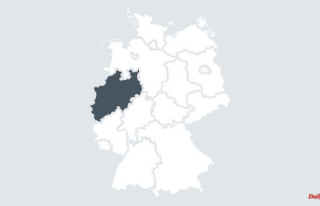With the help of a network of several companies and a sophisticated pyramid scheme, three men are said to have stolen 92.5 million euros from their investors. They have been successful with this for a number of years. Now the suspected fraudsters have to answer to the public prosecutor.
The Berlin public prosecutor's office has brought charges against three investment fraudsters who are said to have obtained many millions of euros with the help of a Ponzi scheme. As the prosecution announced, the men aged 50, 56 and 62 are said to have robbed investors of their money from 2007 to 2017. They received 1.5 million, 13 million and 92.5 million euros respectively.
To this end, the suspects had created a large-scale so-called snowball system involving numerous intermediaries and a network of a total of 13 companies. The men are accused of, among other things, cases of commercial and gang fraud, infidelity and the falsification of evidentiary data.
Two of the men are said to have founded the Picam business association as early as 2003, and the third accused joined them in 2004. Investment products, so-called “DAX futures”, were offered, which are said to achieve an annual return of 15 percent and an average of 20 percent. This should be made possible by specially developed software that actually does not exist. The minimum investment amount was 50,000 euros.
According to the prosecution, in order to make the offer appear serious, the men falsified quarterly reports and created false investment confirmations, among other things. Brokers and investors are said to have been kept happy with monthly performance emails.
According to the public prosecutor's office, the group of companies received around 321 million euros in this way during the crime period. Only a fraction of this was actually invested - and at a loss. Around 205 million euros were paid out to old investors to keep the snowball system going. In any case, at least 850 of the approximately 3,000 investors suffered damage.












